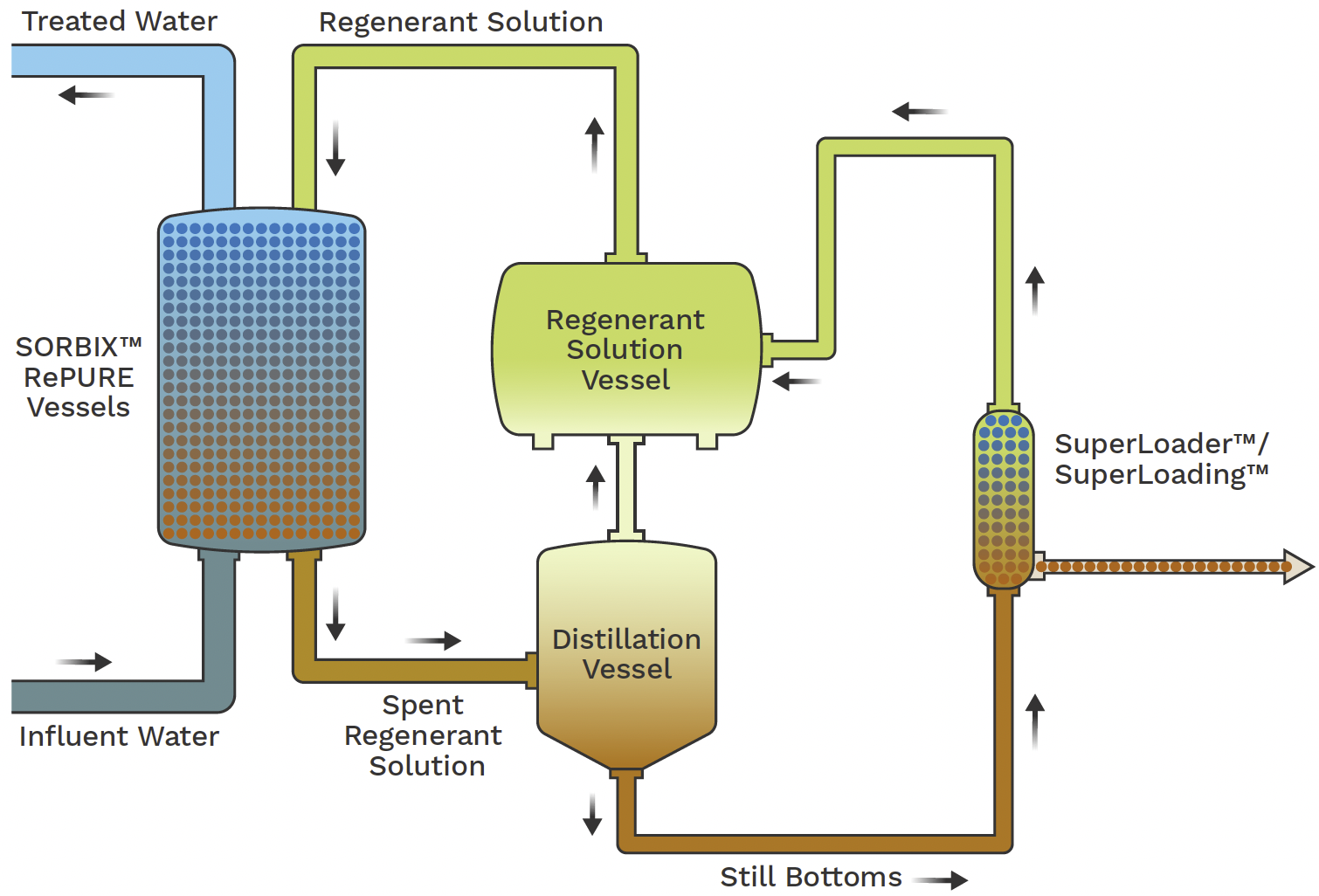Just How PFAS Therapy Ensures Tidy and Lasting Water
The presence of PFAS, typically recognized as "permanently chemicals," postures significant obstacles to water quality and public health and wellness. The implications of these treatments expand past immediate wellness benefits; they raise crucial inquiries about long-lasting water administration approaches that have to be addressed to guarantee a durable future.

Understanding PFAS Contamination
PFAS, or per- and polyfluoroalkyl materials, have arised as a considerable environmental problem because of their prevalent prevalence and perseverance in the atmosphere. These artificial chemicals have actually been made use of in different industrial applications and customer products, consisting of non-stick cooking equipment, waterproof garments, and food packaging, because of their special homes such as water and oil resistance.
The contamination of dirt and water sources by PFAS happens mainly through commercial discharges, firefighting foam use, and leaching from landfills. pfas management. When launched, these compounds are immune to degradation, bring about their build-up in the atmosphere. This determination elevates critical issues, as PFAS can travel cross countries via groundwater and surface area water systems, influencing drinking water materials and ecological communities

Wellness Risks of PFAS
The determination of PFAS in the environment elevates considerable health issues for individuals revealed to these materials. Research study has actually linked PFAS exposure to numerous unfavorable wellness results, consisting of immune system dysfunction, liver damages, and enhanced risk of certain cancers.
The universality of PFAS in consumer products, such as non-stick cooking equipment, water-repellent materials, and food packaging, more magnifies the risk of direct exposure. Consuming alcohol water contaminated with PFAS is a significant worry, as these chemicals can seep into groundwater resources. Prone populaces, including kids and those living near industrial websites, might deal with elevated dangers as a result of their creating systems and prospective for greater direct exposure degrees.
As awareness of these health dangers proceeds to expand, regulatory firms are starting to establish guidelines for PFAS degrees in alcohol consumption water. Public health and wellness efforts are vital to alleviate direct exposure and safeguard areas from the long-lasting impacts of these unsafe materials.

Ingenious Treatment Technologies
Just how can we efficiently tackle the obstacles postured by PFAS contamination in water sources? Ingenious treatment technologies are arising as essential services in the mission for clean water. These approaches you can find out more concentrate on the removal or devastation of per- and polyfluoroalkyl compounds (PFAS), which are notorious for their perseverance in the setting.
One encouraging approach is adsorption using innovative products, such as triggered carbon and ion exchange resins. These products have shown efficacy in capturing PFAS particles from water. One more noteworthy modern technology is membrane filtering, which makes use of nanofiltration and turn around osmosis to separate pollutants at the molecular level, hence providing a barrier against PFAS.
Furthermore, advanced oxidation procedures (AOPs) utilize solid oxidants to break down PFAS substances right into harmless results. This method is especially efficient for treating extremely contaminated water sources. Bioremediation strategies, using specific microbes, are likewise being explored to deteriorate PFAS.
As study proceeds, hybrid systems that incorporate numerous technologies may offer enhanced efficiency, addressing the complexities of PFAS contamination. The development and implementation of these innovative treatment innovations are necessary steps toward making sure the safety and sustainability of our anonymous water sources.
Advantages of Efficient PFAS Therapy
Efficiently dealing with PFAS contamination in water sources substantially boosts public wellness and environmental security. PFAS, often described as "permanently chemicals," are immune to degradation and can collect in the body, leading to major wellness threats such as cancer, liver damages, and body immune system dysfunction. By applying efficient treatment approaches, communities can lower exposure to these dangerous materials, ultimately boosting the wellness results of their populations.
In addition, effective PFAS therapy contributes to the preservation of local environments. Contaminated water can detrimentally impact marine life and interrupt the fragile equilibrium of regional environments. By making certain clean water, therapy processes secure biodiversity and preserve eco-friendly stability.
In addition, effective PFAS removal can cultivate public confidence in water high quality. When areas are guaranteed that their alcohol consumption water is without harmful pollutants, it promotes a feeling of safety and security and well-being. This count on is essential for community engagement and assistance for continuous water management campaigns.
Future of Water Sustainability
Amidst growing worries about water top quality and shortage, the future of water sustainability rests on cutting-edge strategies and joint initiatives. As communities encounter the looming threats of pollutants like PFAS, the development of advanced therapy modern technologies is essential. These modern technologies not only focus on the elimination of harmful compounds but also advertise the reuse and recycling of water, therefore minimizing overall demand.
Additionally, efficient water administration plays a critical role in making certain lasting practices. Policymakers need to incorporate scientific research study with governing structures to establish clear guidelines for water usage and treatment. Stakeholder engagement, consisting of local areas and industries, cultivates a feeling of shared responsibility and urges lasting methods throughout various markets.
Investment in framework is also important; upgrading aging systems to include modern-day purification and purification approaches can considerably enhance water quality. Furthermore, accepting green technologies, such as natural purification systems, can provide environmentally friendly services.
Eventually, the future of water sustainability hinges on an all natural strategy that incorporates modern technology, policy, and neighborhood involvement. By focusing on these elements, we can secure our More about the author water sources for generations ahead, ensuring tidy and lasting water for all.
Verdict
Finally, the efficient treatment of PFAS is crucial for guaranteeing clean and sustainable water. By employing sophisticated modern technologies such as triggered carbon adsorption, membrane layer filtration, and progressed oxidation processes, areas can significantly lower the health and wellness risks related to these pollutants. Additionally, the assimilation of these treatment approaches supports ecosystem protection and improves biodiversity. Inevitably, robust PFAS therapy strategies add to long-lasting resilience in water administration, promoting public rely on water quality and promoting lasting methods.